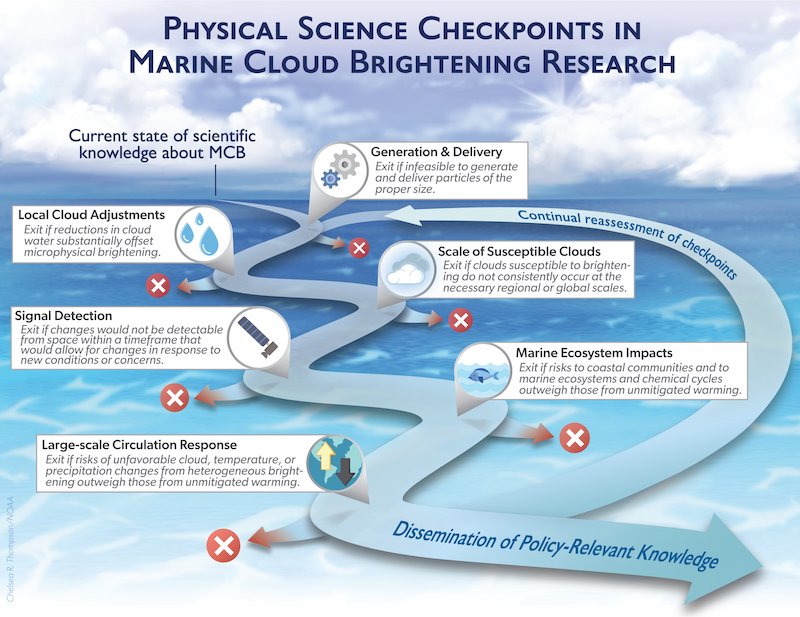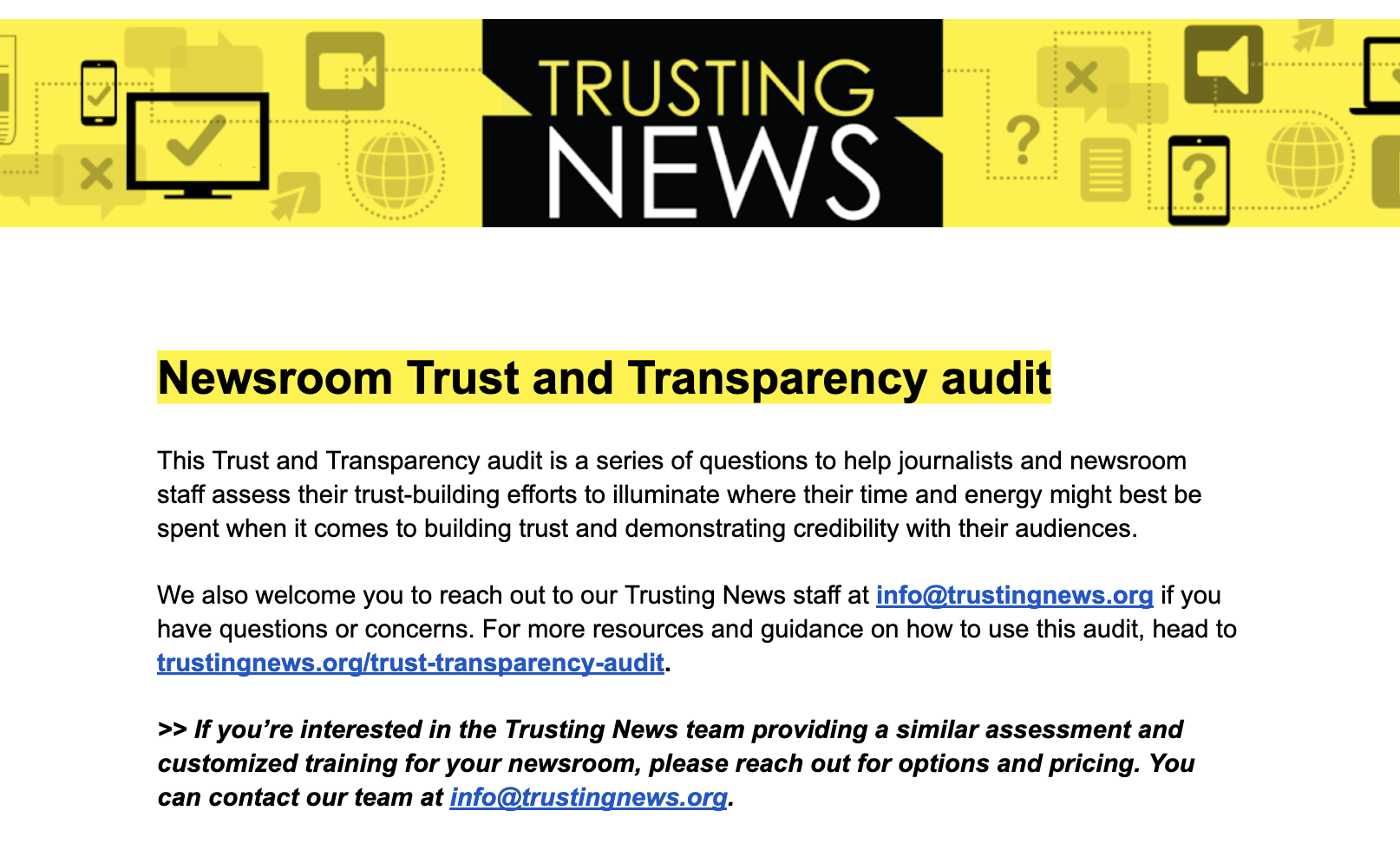 This graphic describes checkpoints and off ramps to guide research on marine cloud brightening as a proposed strategy for mitigating the impacts of climate change. Credit: NOAA
This graphic describes checkpoints and off ramps to guide research on marine cloud brightening as a proposed strategy for mitigating the impacts of climate change. Credit: NOAA
Jan. 20, 2022 (Phys.org) -- Research into engineering techniques that might one day be employed to artificially cool the planet poses some of the thorniest questions facing society today. For climate scientists, that tension is compounded by the lack of a broadly accepted oversight framework to guide their research.
In an opinion article published in PNAS, a team of scientists led by NOAA and CIRES researchers outline a framework for assessing the viability of a method for reflecting sunlight called marine cloud brightening, or MCB. The proposed method would use ocean sea-salt particles to increase the reflectivity of low-lying clouds over certain ocean regions. This is one of a number of proposed methods under consideration as a temporary measure to limit rampant warming.
Climate scientists agree that the most important steps that can be taken to avoid the worst impacts of climate change are to decarbonize the economy and preserve and restore natural ecosystems that absorb carbon, said lead author Michael Diamond, a CIRES scientist working at NOAA.
Unfortunately, current pledges to cut global greenhouse gas emissions are insufficient to limit warming to 1.5 degrees C (or 2.7 degrees F). As global climate impacts grow in severity, the interest in climate intervention research is expected to increase. A 2021 report issued by the National Academies of Science, Engineering and Medicine recommended conducting research in climate intervention methods and, further, said such research should operate under "robust research governance" to objectively assess its value and risks -- governance that does not yet exist.
(more)
READ MORE: Phys.org











